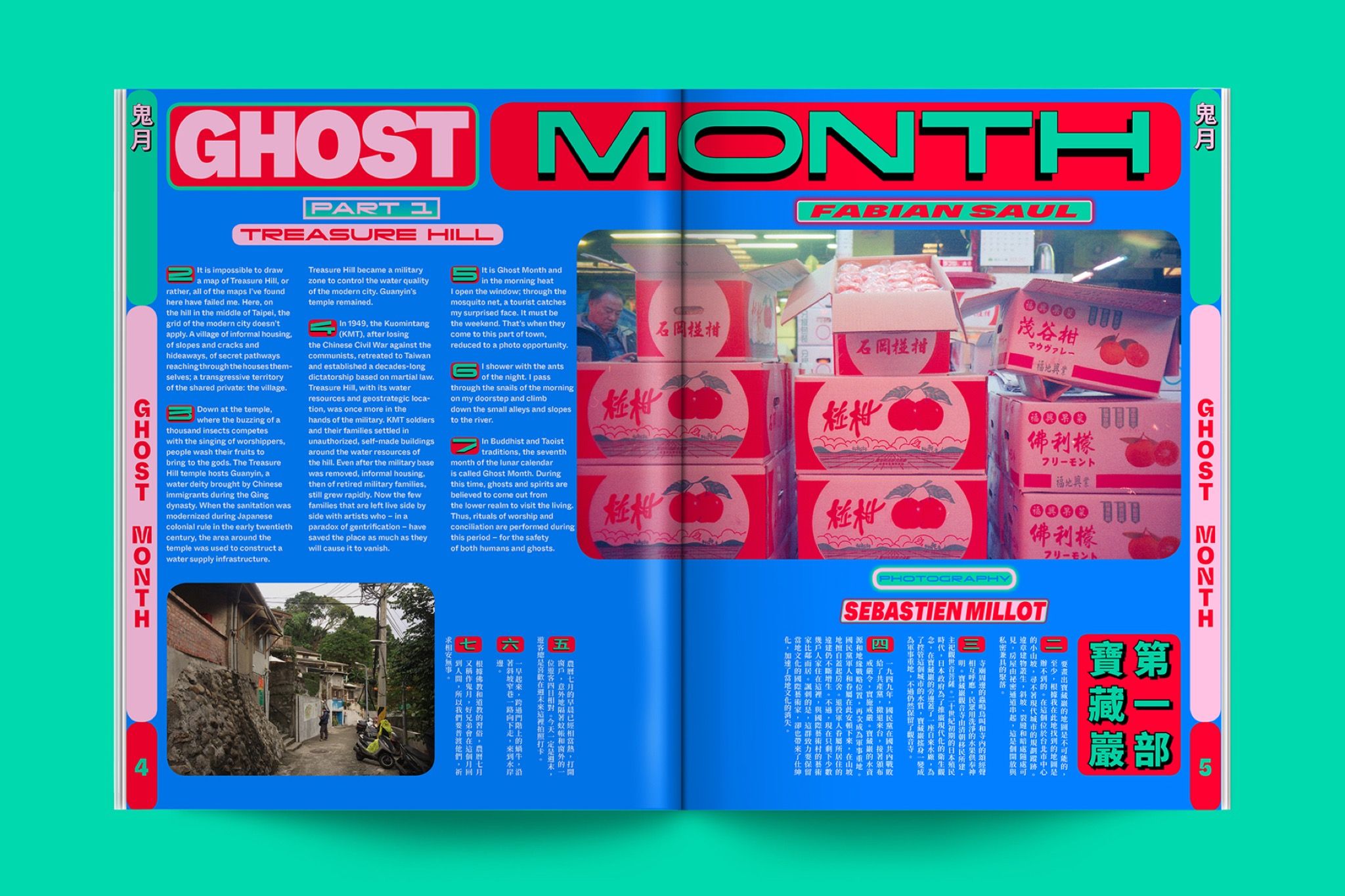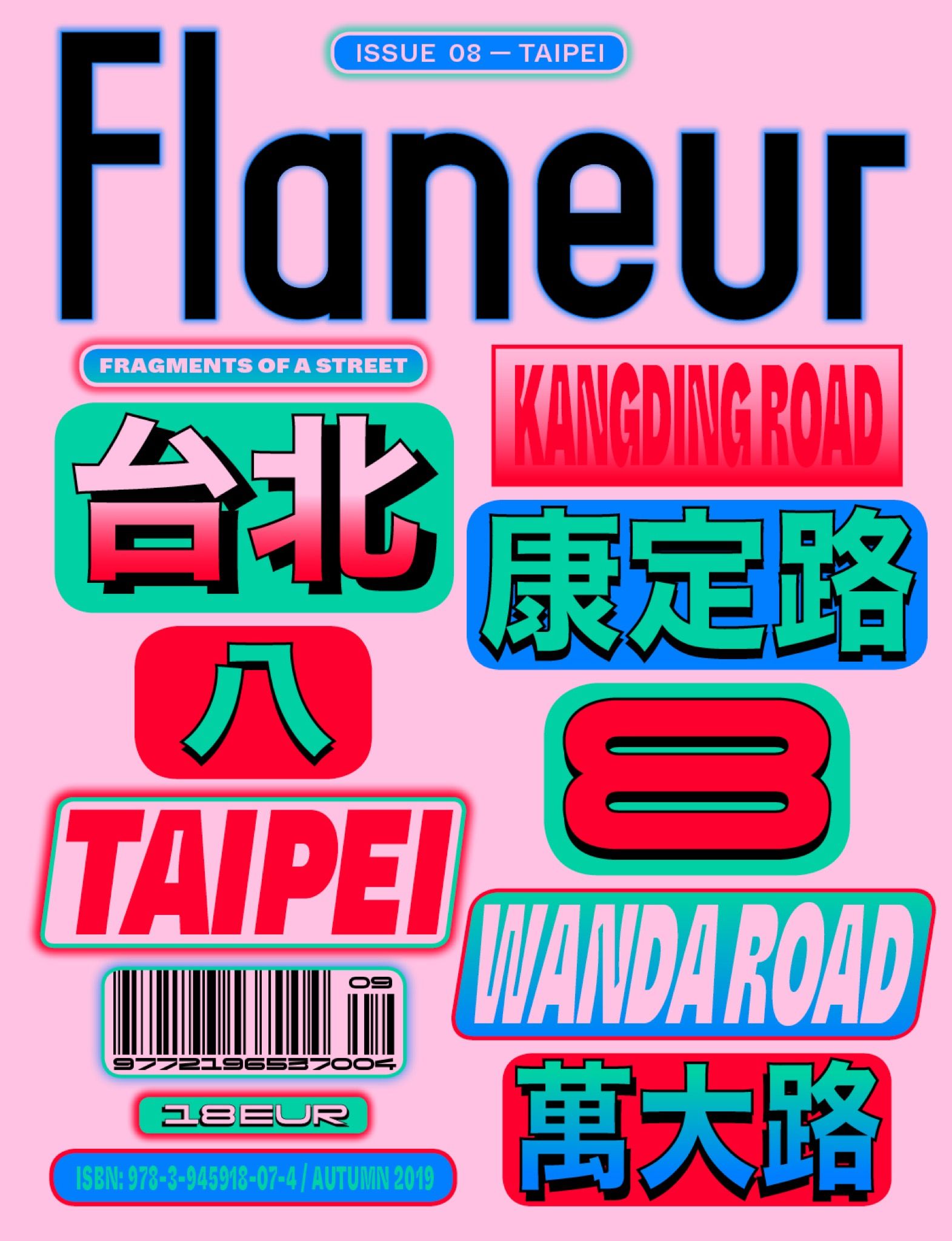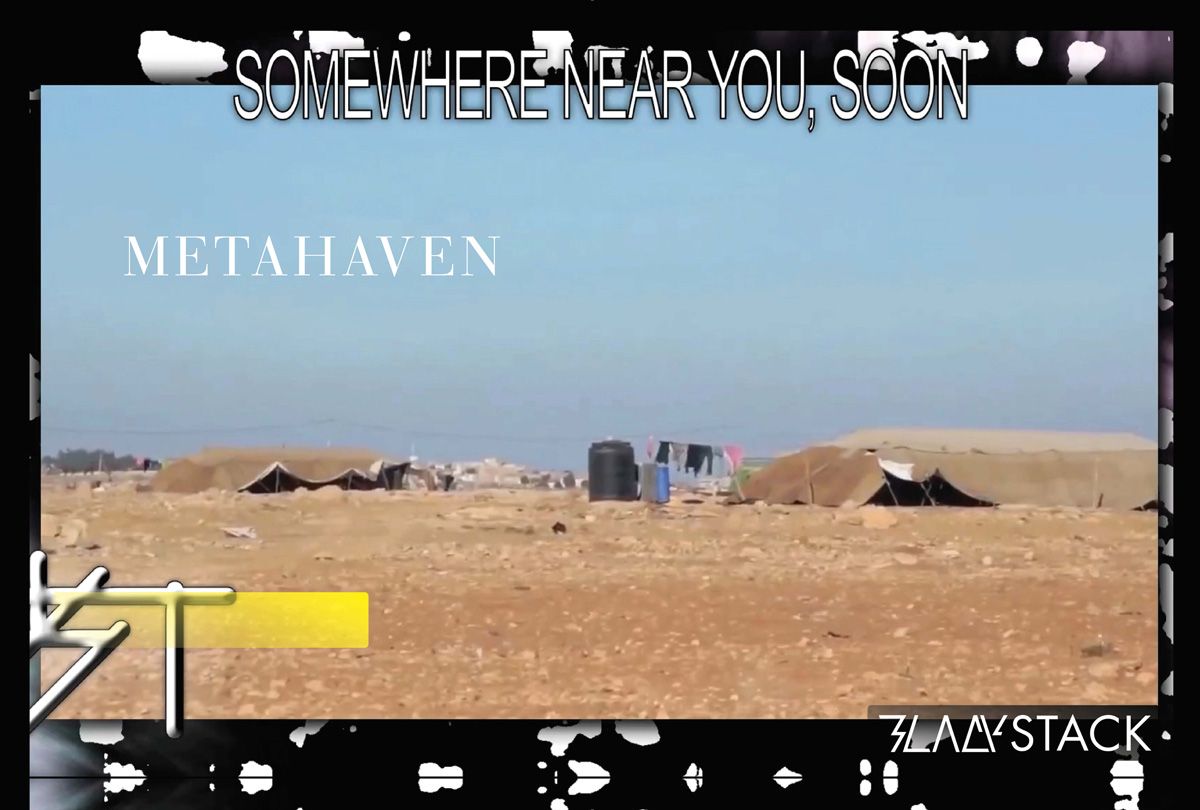“I bless the day I found you / I want to stay around you”: FLANEUR WALKS TAIPEI
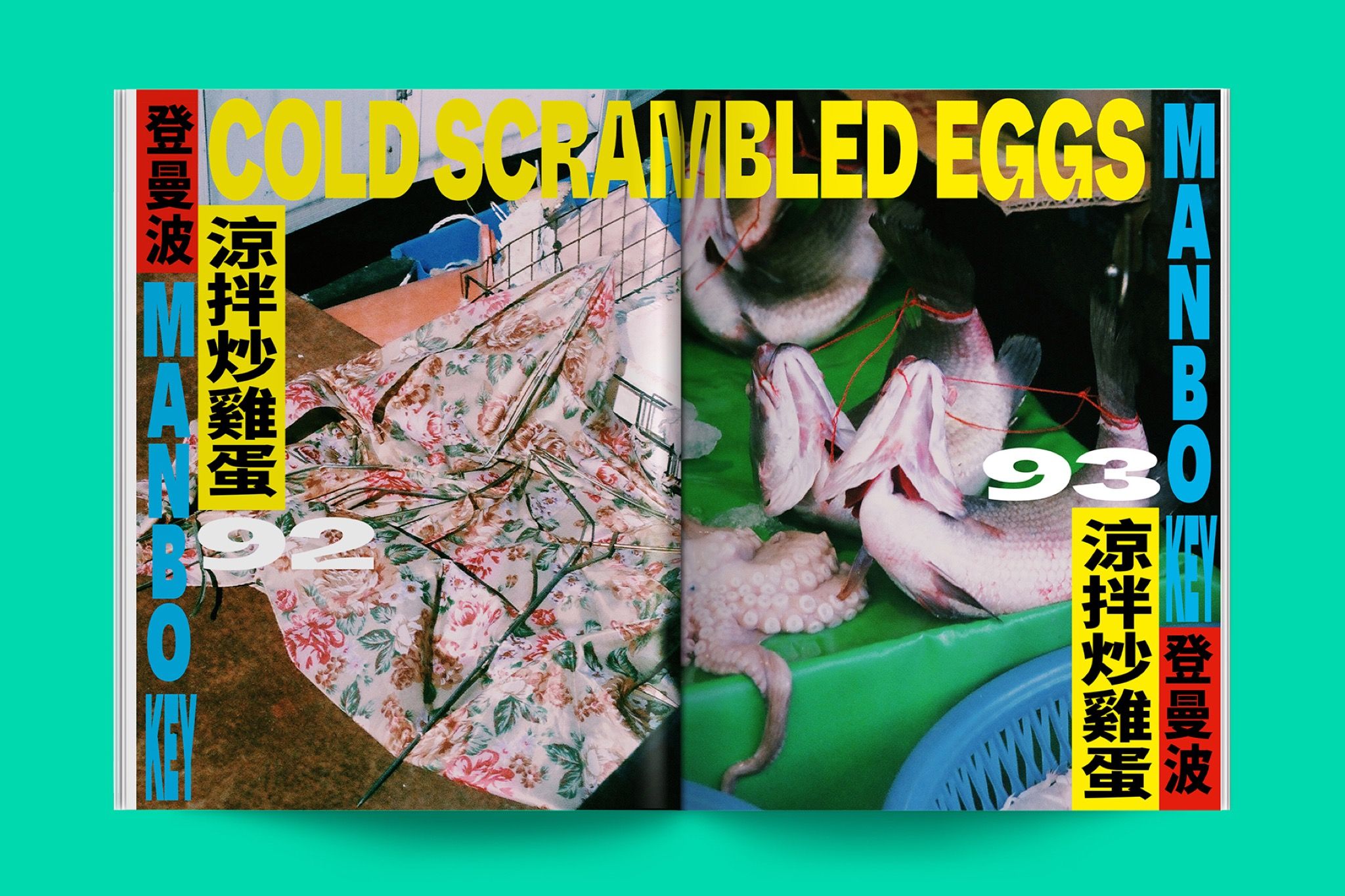
Each edition of Flaneur Magazine is dedicated to one street, in one global city, and produced on-site in collaboration with local artists and writers. After depicting thoroughfares in Berlin, Leipzig, Montréal, Rome, Athens, Moscow, and São Paulo, Flaneur has devoted its eighth issue to the intersection of Kangding Road and Wanda Road in Taipei, Taiwan: a crossroads of layered colonial and urban histories, explored through text and image in shopping mall romance, the lost arts of Taiwanese geishas, nighttime street poetry, and the comings and goings of ghosts and deities.
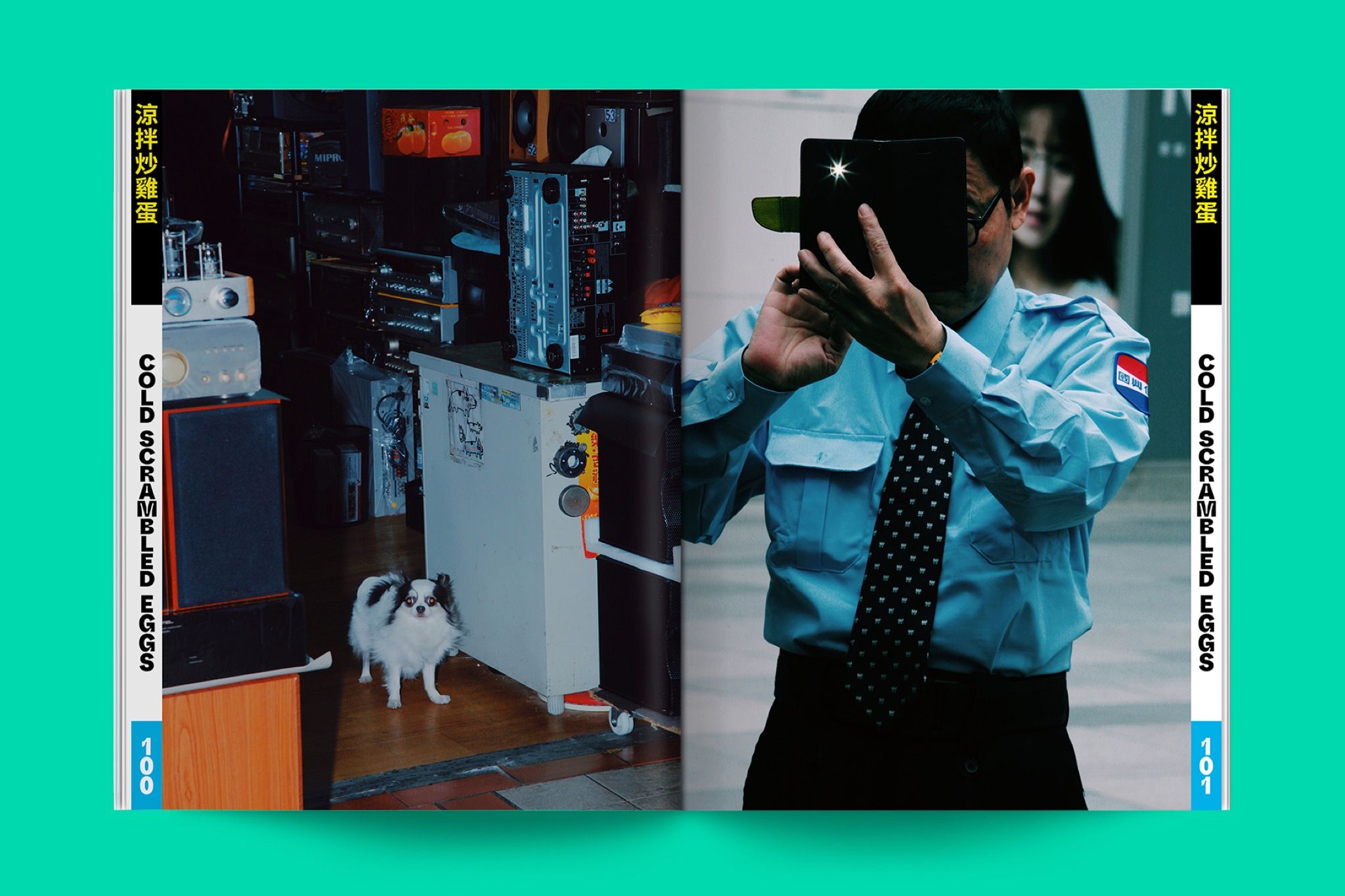
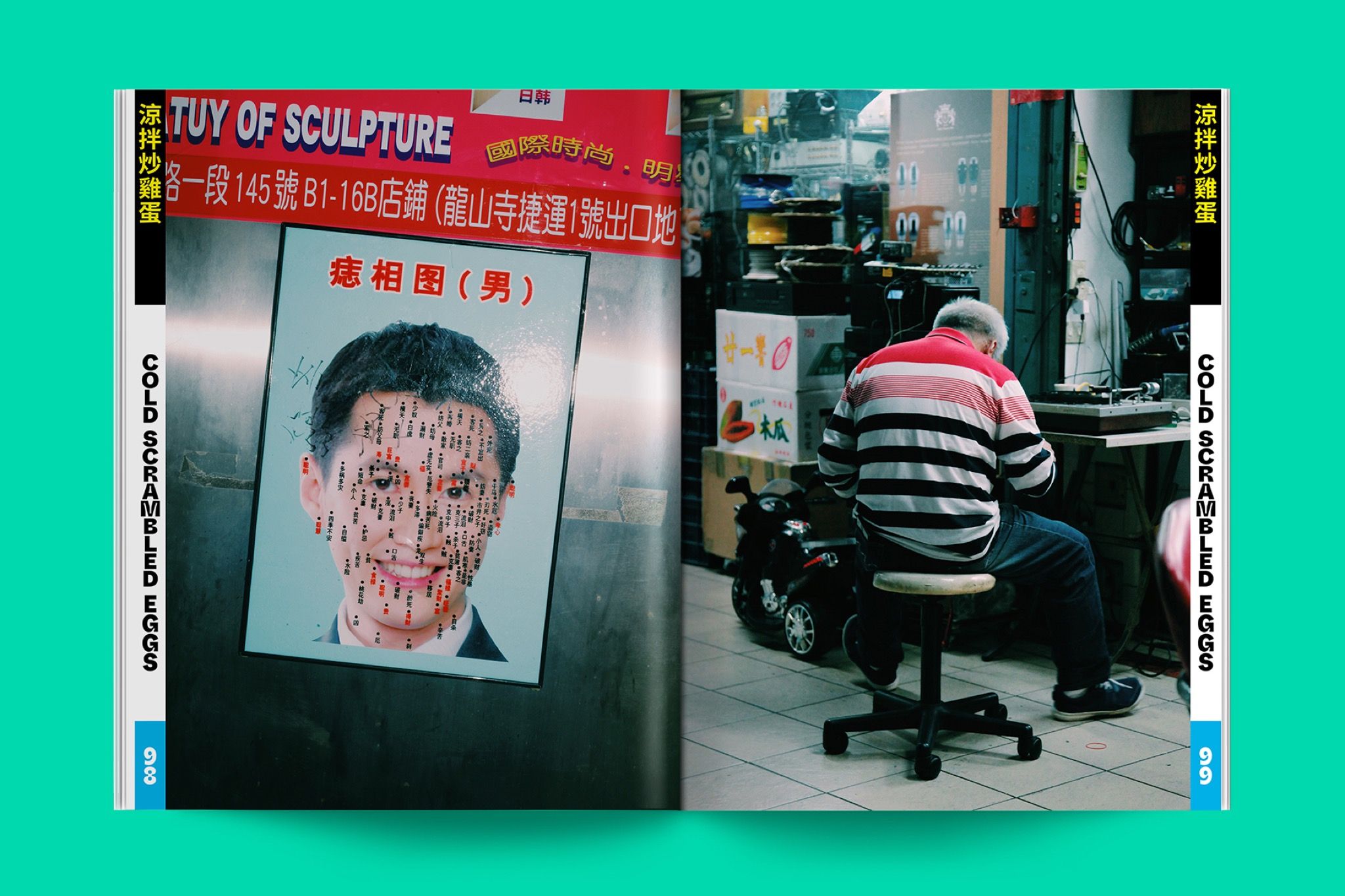
Taipei City had always compelled the editorial team, and when the opportunity arose to do a three-month artist residency at Taipei Art Village Treasure Hill, Flaneur seized the moment. “There needs to be an initial momentum that feels like an invitation,” says the team of their city selection progress. “Because of the diplomatic vacuum of Taiwan, international readers might not have such set imagery from Taipei. In some ways, it is not ‘on the map,’ although it is one of the most progressive places in the region. With the fantastic Taiwanese contributors of this issue, we hope to shed light on the mesmerizing layers of Taipei City.”
The new issue, which appears in English and Mandarin, launches in Berlin this week with a 20.5 hour festival at the Haus der Kulturen der Welt beginning on Saturday August 31 and concluding on Sunday September 1, just after the Berlin sunrise. The event – which we are told will feature piano karaoke, stargazing, and breakfast in addition to panels, workshops, and performances – intends to expand on the interactive approach behind the making of the magazine. “Having made seven issues we realized that the collaborative spirit of Flaneur Magazine doesn’t get fully translated to the audience with an everyday launch party,” say the editors. “In a way, the release of a publication can feel like an anticlimax, as if the discourse terminates. The idea to turn the magazine into a festival is an attempt to extend the platform in a participatory way. The multiple angles and discussions that thrive the issue should be opened for discussion, contradictions, and new, additional angles.”
Below is a special selection of excerpts from Flaneur‘s Kangding/Wanda Road, Taipei, curated by the editors.
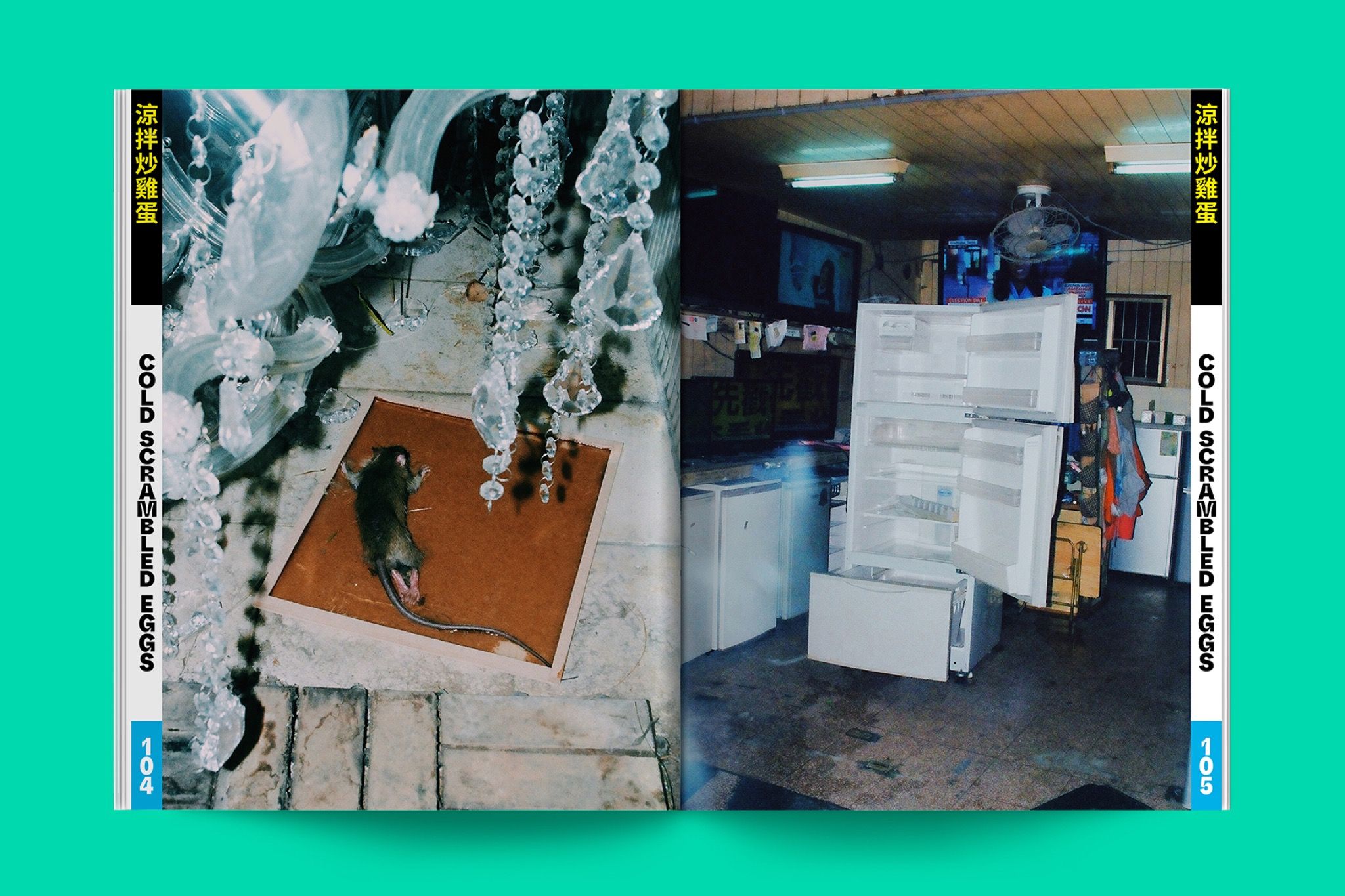
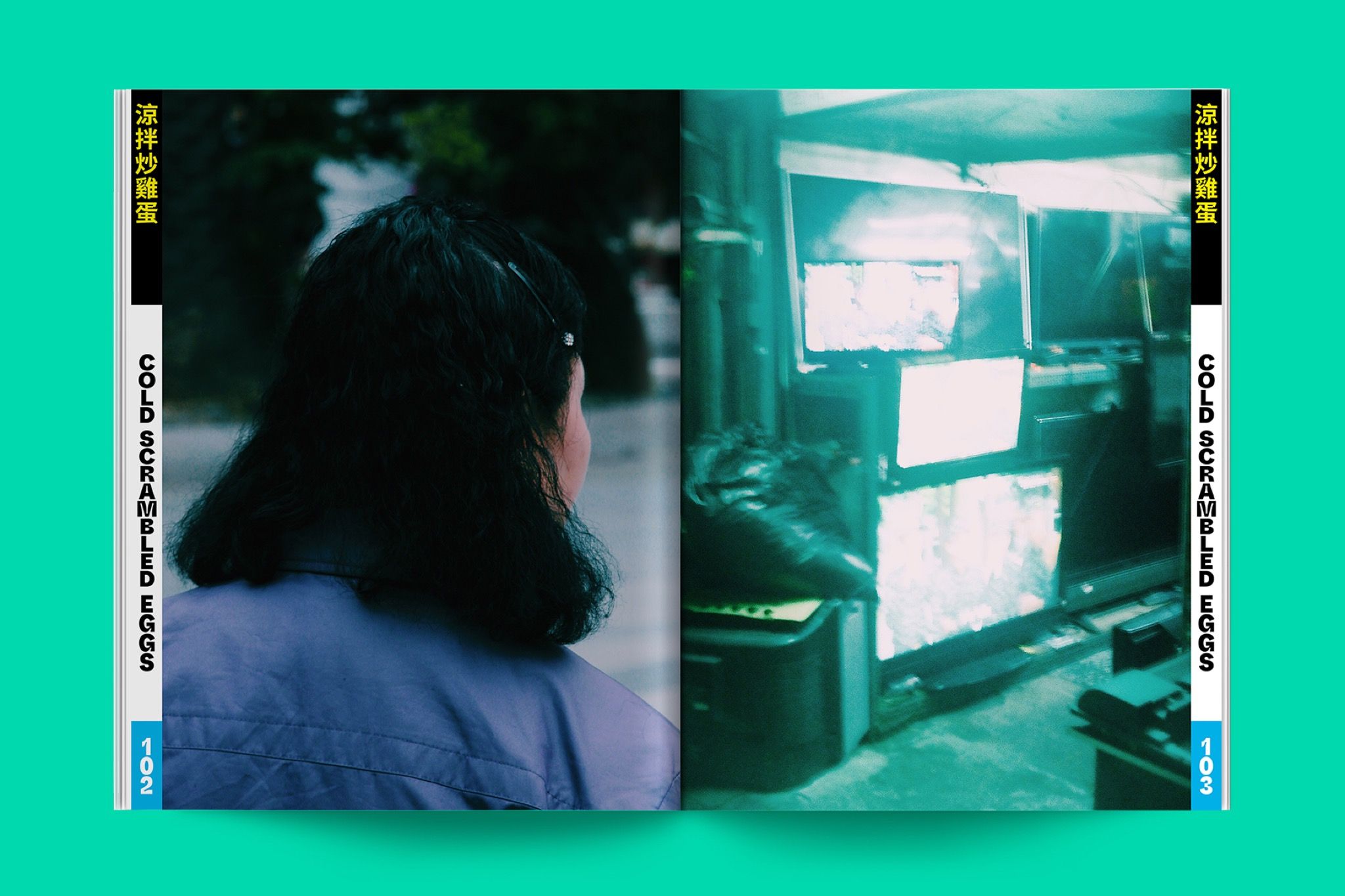
1. I Bless The Day I Found You
Photography: Manbo Key
Text: Grashina Gabelmann
I go to the bottom floor of the shopping mall after exiting the metro. Low ceilings, like a garage, of course no natural light, the stores have no doors, they all flow into each other. I enter a place called 龍山水果俱樂部 (Longshan Fruit Club). Opposite is a jewelry shop and another shop selling tourist knickknacks, like those waving cats.
On the back wall of the café is a print-out of the Manhattan skyline taking up the entire wall. The twin towers’ presence attests to the outdatedness of this image, as does the presence of several smudges, trails of dried-up liquid spilling down the image next to the towers as if to imitate their shape in reverse.
I sit with a wall behind me, the kitchen to my right, overlooking the entire café. I first notice an old man – although no one in here is younger than 65 – in a gleaming white polo shirt that matches his hair. He sits facing the shops opposite the café. His chair has ornaments, the others don’t, giving him a sense of majesty that complements his white hair and shirt. He smiles at me. I don’t think it’s often a foreigner sits here, or a young person for that matter. He starts singing, his mouth almost empty of teeth. He sings and taps his foot and nods his head back and forth as if listening to hip-hop, but there’s no music playing.
The kitchen isn’t a separate room but, rather, a maze composed of different pieces of furniture. The wooden counter facing the customers is white and green and laden with papayas, oranges, pineapples, pomelos and limes. Next to this counter stands a large metal hot water vessel. Beyond the green counter, inside the maze that is the kitchen, I can only identify a large fridge and stove – further objects seem obscured by even more objects. The arrangement of things creates a room within a room.
[…]
For half an hour we use a translation app to communicate. He speaks into his phone in Mandarin and the app translates what he says into English and German text:
»Ist es gut, die Huehnereier zu braten?« – »Is it good the fry the chicken eggs?«
»Ich bin Glasingenieurlehrer« – »I am a glass engineer teacher.«
»Mama und Papa lassen mich nicht mehr alleine.« – »Mom and dad don’t let me alone anymore.«
»Es gibt alles, was ich tun kann, um Ihnen zu helfen, mich mitten in Taiwan anzurufen.« – »It gives all I can do to help you, to call me in the middle of Taiwan.«
»Erdnuss Zucker zum Essen zurueck.« – »Peanut sugar to eat back.«
»Now you have to eat, and then take you shopping.«
»Berlin surrounds the wall.«
While he shows me more videos of him singing karaoke, the owner walks past and takes one of his cookies.
Before I leave, he plays one more song with the lyrics: “I bless the day I found you / I want to stay around you.”
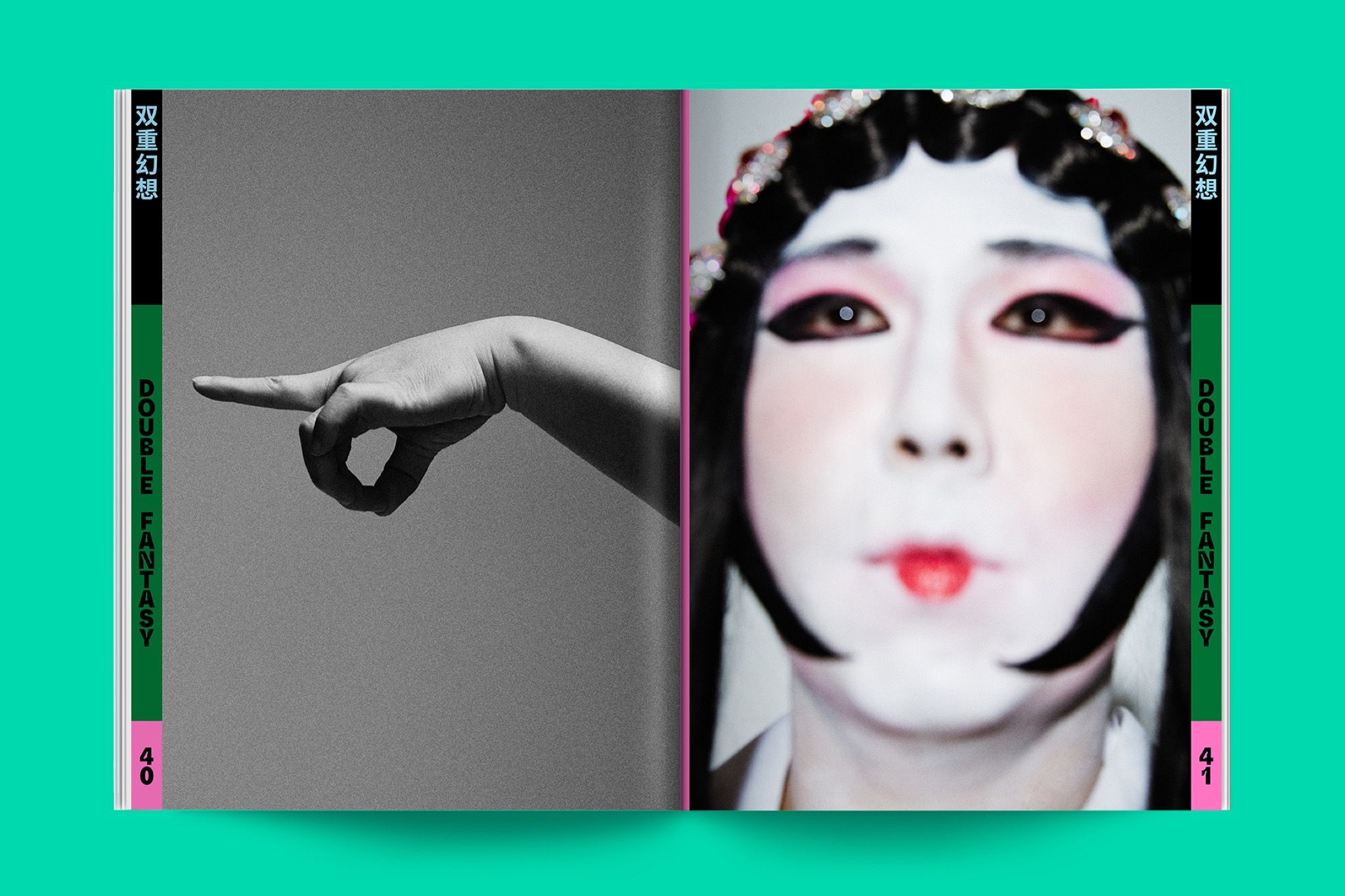
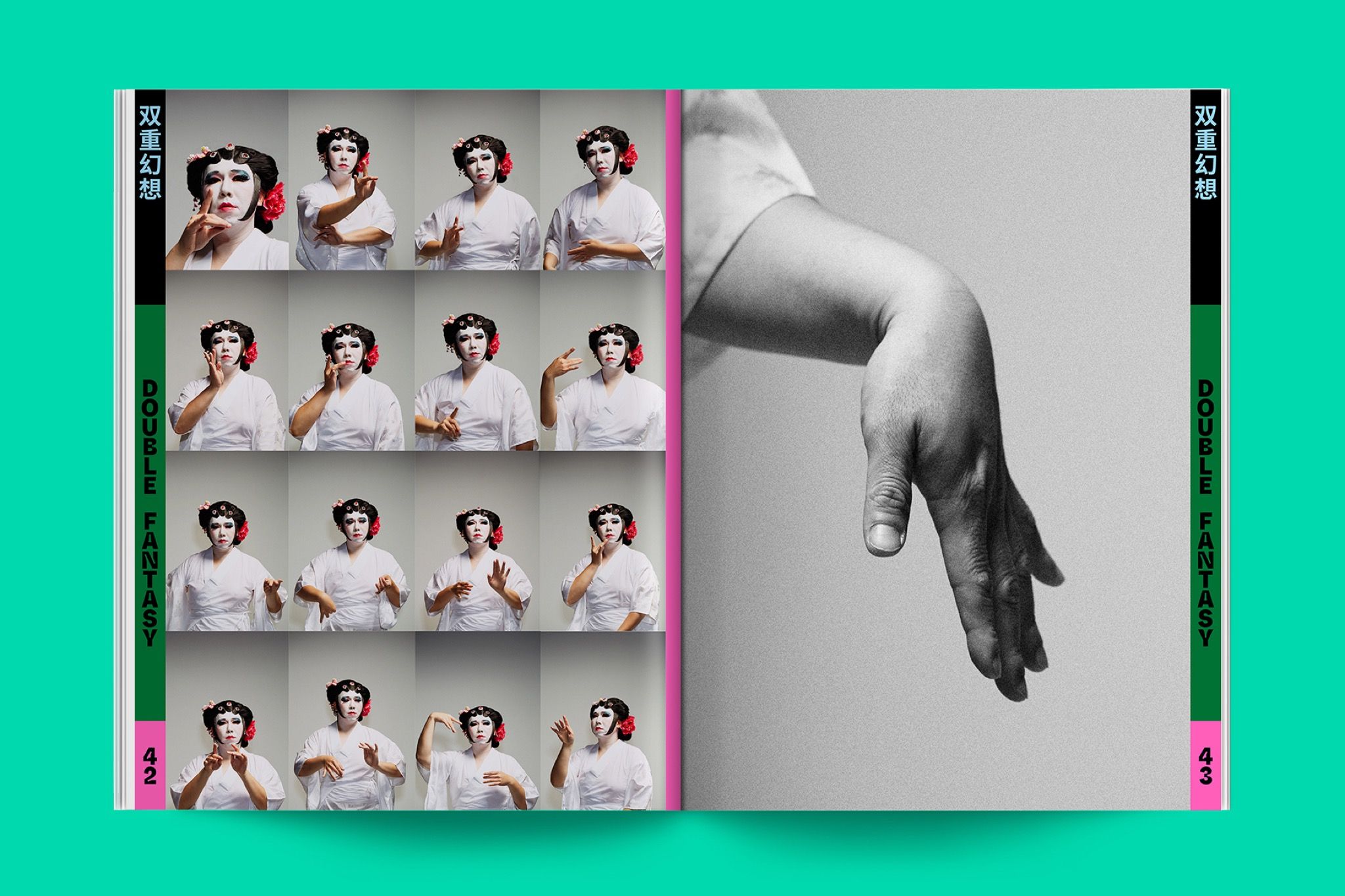
2. Double Fantasy
by Yu Cheng-Ta
Translation: Fiona Sze-Lorrain
Like enchanting silhouettes glimpsed through history, Taiwanese geishas (1880s—1940s) existed for over half a century, from the era of Qing rule in Taiwan to World War II. Although society viewed a geisha’s life as undesirable, she might consider herself privileged in such difficult times of male chauvinism: While most girls had no chance of an education, geishas crossed paths with the literati through poetry and appeared, like glamorous promotional artists, in tabloids. Some prominent geishas composed and recited verses, playing the pipa as well as performing Nanguan and Beiguan music. Wang Xiangchan (1886—?) was one of these women. Born in the Monga district of Taipei, this famous geisha and poet led a hard life in a complex political environment. She was a disciple of Lian Heng, the author of the General History of Taiwan. Her second husband, Xie Jieshi, was Taiwanese and served as the Manchukuo Minister of Foreign Affairs. During her final years, Wang and Xie moved to China. The couple eventually divorced. What became of Wang remains a mystery. Like the celebrated Taiwanese geisha, she became a legend frozen in time.
Double Fantasy
Yu Cheng-Ta has researched the few and little known historical sources and video recordings of Taiwanese geishas, including Wang Xiangchan. With his queer body, he has studied with a master and recorded his performance of “self-transformation.” By learning the hand gestures and body movements of a dan in Nanguan music, Yu seeks to unriddle the fictitious and reserved feminine postures of Asian opera. Using Wang Xiangchan’s poems, he has mastered the Quanzhou dialect and Nanguan aria to create a danrole that blends the elements of Japanese geisha performance with the aesthetics of traditional Chinese opera – a bigendered “Shasha” who is the product of dualized sociocultural politics.


3. Suddenly Unrecognizable
by Hu Shu-Wen
Translation: Lee Yew Leong
I’ve never understood how winter goes away because spring never comes on time, just as the first buds never open on time and Grandma’s chronic disease never flares up on time. Living things being what they are, they don’t adhere to any schedule; death invariably comes in tow. A better indicator might be peach blossoms. Before and after their arrival, something always comes over Grandma: she gets into a tizzy, becomes more talkative, more susceptible to vanity. The flush in her cheeks invariably spreads to her ears, and her eyes turn into hot coals, their darkness belying a fire, and flickering beneath it all is hope: “My man is coming home!” But it was also a hope that begot worry… “I have to see a doctor and get myself cured so I can welcome your Grandpa in tip-top shape!” When her eyes glinted as they did then, suggesting that she hadn’t slept for two days straight, and her pupils darkened like brown sugar roasted over fire, as if all she had to do was stick out her tongue and lick them for a taste of her dream, I would know that Grandma was going to take me with her to a faraway place.
I say “faraway place” but really it was a short commute with one change of bus that took us from Songshan to a place called Wanhua to visit her old doctor. Even so, for a child of nine years, this was faraway enough, and, besides, quite a fun adventure. Before heading to the clinic, we would first make a detour to Huaxi Street and stroll to nearby Sanshui Street, Guangzhou Street, and Wuzhou Street, eating snacks the entire way. So that I could buy this and that, Grandma would give me pocket money so lavish that the money almost seemed fake. As for that barefoot old doctor, now that I come to think of it, he could tackle one hundred diseases with a single prescription. There was nothing he couldn’t treat but at the same time nothing he fully cured. His specialty was “incurable diseases.” Those thus afflicted were incredibly loyal to him. Perhaps what he prescribed was nothing more than sweets or some kind of placebo coated with sugar; in any case, he saw Grandma’s feint for what it really was: just an affliction of the heart. I shouldn’t say “just”; after all, afflictions of the heart are the most troublesome; arguably, they are the least curable. Ma was convinced on this matter, which is why she let both of us go.
[…]
By the time we left the clinic, we were just in time for sunset’s last act. Grandma paced the street a few times before finding the largest piece of sky circumscribed by a crowded reality: the largest horizontal line above crowded vertical lines. Seeing a flock of birds amid the changing sky, I crossed the road to buy a popsicle. When I turned back, looking at Grandma from the opposite side, past the zebra crossing and the cars, I realized how different she looked from afar. Wiping away her sweat, she seemed to be carrying lots of words in her mouth; she even looked as if she was praying. With each step she took, she seemed to be shedding an inch of skin in a constant act of self-renewal. Framed this way, it even seemed to me that she was wriggling. I had never seen her from so far away, from a stranger’s distance. So familiar, but in the next second, so estranged. I had the feeling that if I kept looking, once the crowds had passed, I would no longer be able to recognize her.
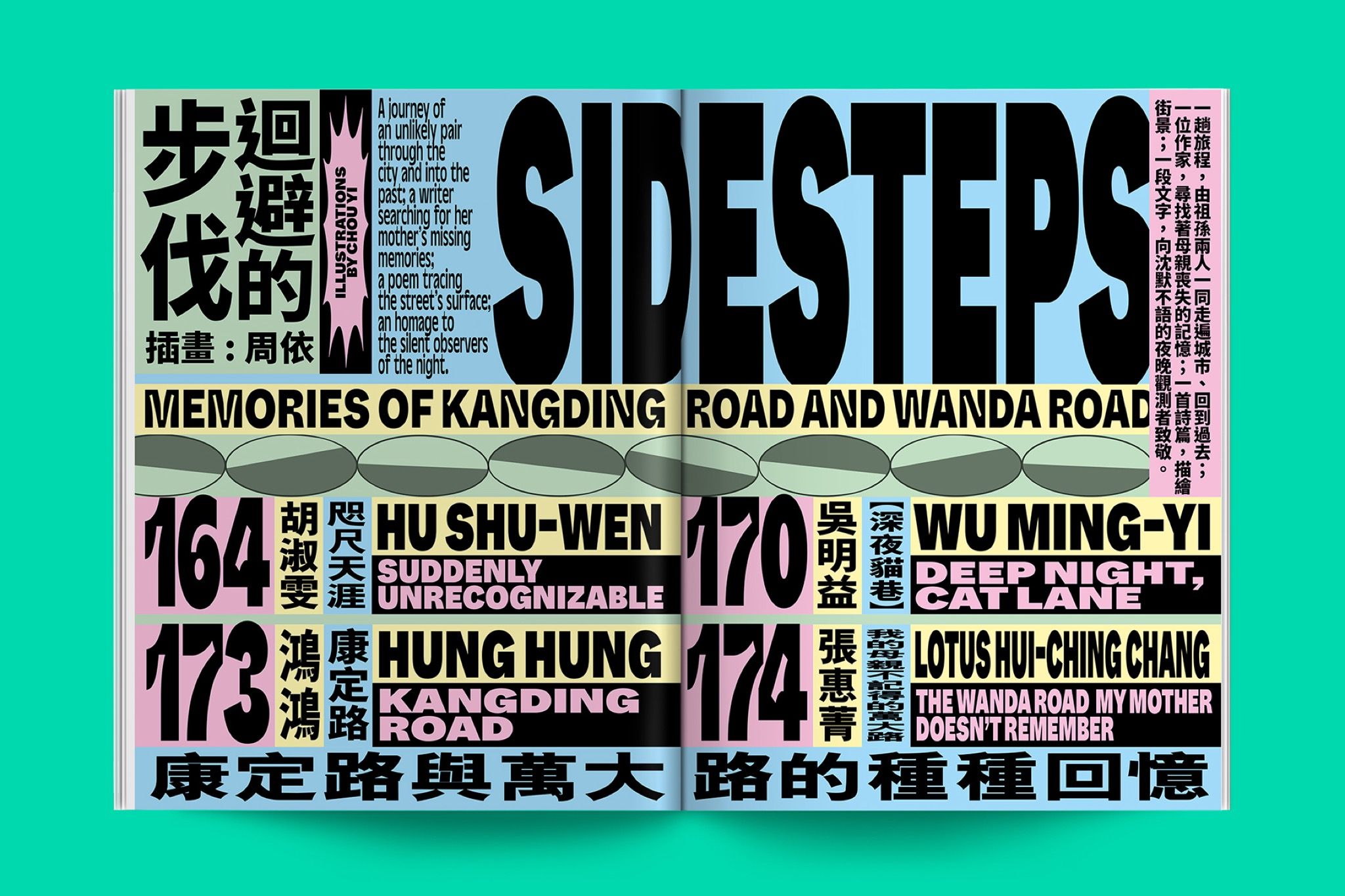
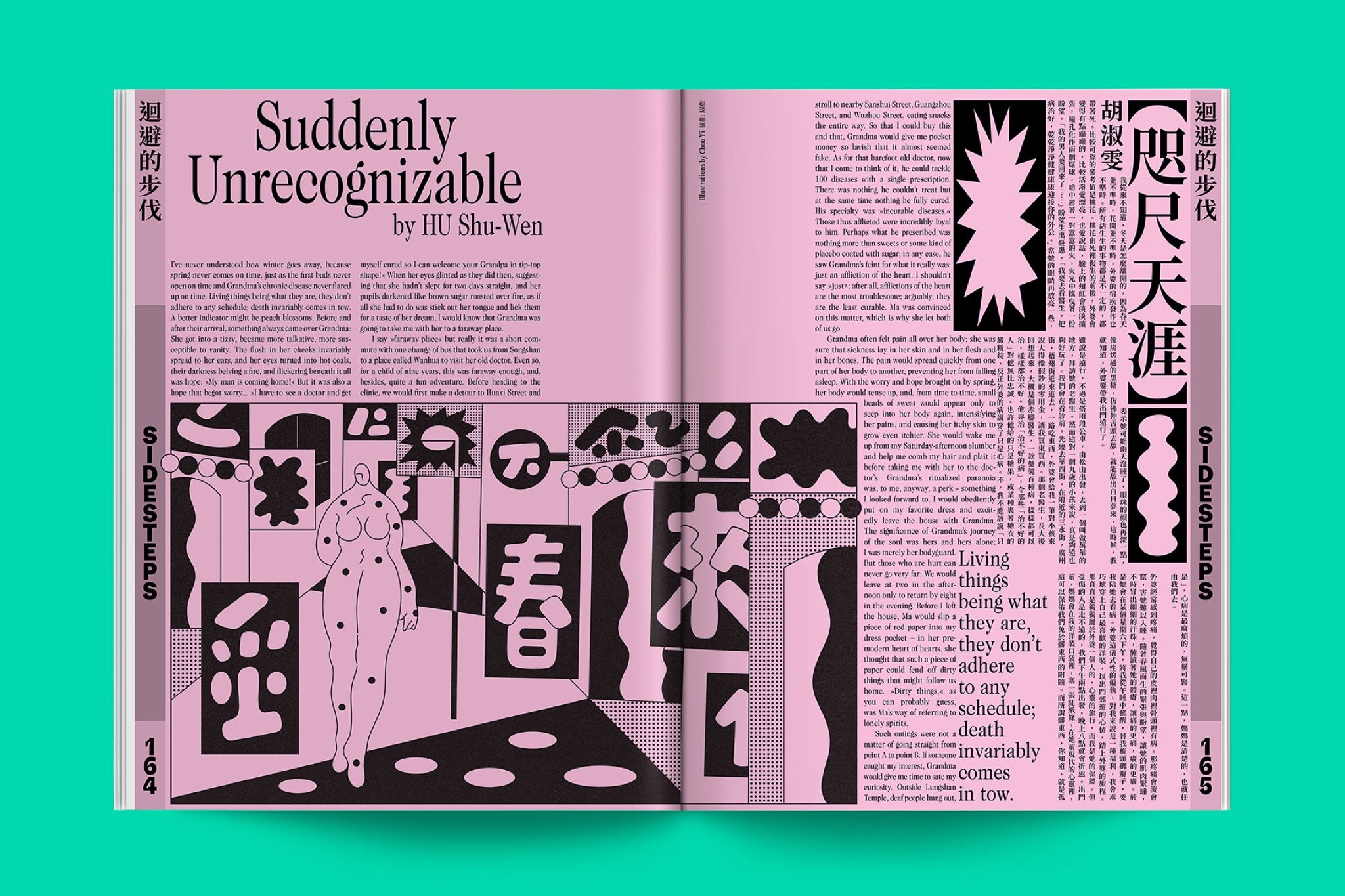
4. Ghost Month
by Fabian Saul
PART 1: TREASURE HILL
01
In the looming darkness, lying under the hum of the air conditioning and the sound of a gecko rushing through the room, a rectangular shape sharpens on my retina. Its edges grow slowly under my stare, leaving a burning orange frame that lacks any reference in the pitch-dark room. For all we know, it could be a window, a door; a hole with dimensions I can’t fathom. I roll my body over to the other side. A short cool relief from the wall that the gecko just disappeared in; a vibration in my right hand. The path of my thump, to the right and down, a rectangular shape drawn into the dark, unlocks my phone. Blinded by the light, I read your message: It is Ghost Month.
02
It is impossible to draw a map of Treasure Hill, or rather, all of the maps I’ve found here have failed me. Here, on the hill in the middle of Taipei, the grid of the modern city doesn’t apply. A village of informal housing, of slopes and cracks and hideaways, of secret pathways reaching through the houses themselves; a transgressive territory of the shared private: the village.
03
Down at the temple, where the buzzing of a thousand insects competes with the singing of worshippers, people wash their fruits to bring to the gods. The Treasure Hill temple hosts Guanyin, a water deity brought by Chinese immigrants during the Qing dynasty. When the sanitation was modernized during Japanese colonial rule in the early twentieth century, the area around the temple was used to construct a water supply infrastructure. Treasure Hill became a military zone to control the water quality of the modern city. Guanyin’s temple remained.
04
In 1949, the Kuomintang (KMT), after losing the Chinese Civil War against the communists, retreated to Taiwan and established a decades-long dictatorship based on martial law. Treasure Hill, with its water resources and geostrategic location, was once more in the hands of the military. KMT soldiers and their families settled in unauthorized, self-made buildings around the water resources of the hill. Even after the military base was removed, informal housing, then of retired military families, still grew rapidly. Now the few families that are left live side by side with artists who – in a paradox of gentrification – have saved the place as much as they will cause it to vanish.
05
It is Ghost Month and in the morning heat I open the window; through the mosquito net, a tourist catches my surprised face. It must be the weekend. That’s when they come to this part of town, reduced to a photo opportunity.
06
I shower with the ants of the night. I pass through the snails of the morning on my doorstep and climb down the small alleys and slopes to the river.
